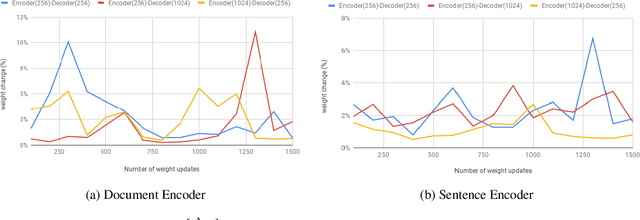On the impressive performance of randomly weighted encoders in summarization tasks
Paper and Code
Feb 21, 2020



In this work, we investigate the performance of untrained randomly initialized encoders in a general class of sequence to sequence models and compare their performance with that of fully-trained encoders on the task of abstractive summarization. We hypothesize that random projections of an input text have enough representational power to encode the hierarchical structure of sentences and semantics of documents. Using a trained decoder to produce abstractive text summaries, we empirically demonstrate that architectures with untrained randomly initialized encoders perform competitively with respect to the equivalent architectures with fully-trained encoders. We further find that the capacity of the encoder not only improves overall model generalization but also closes the performance gap between untrained randomly initialized and full-trained encoders. To our knowledge, it is the first time that general sequence to sequence models with attention are assessed for trained and randomly projected representations on abstractive summarization.
 Add to Chrome
Add to Chrome Add to Firefox
Add to Firefox Add to Edge
Add to Edge